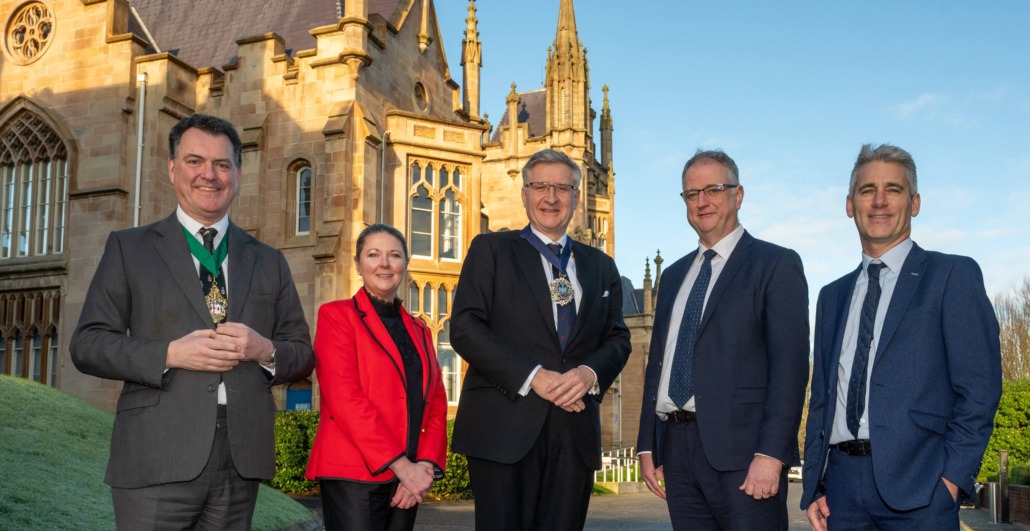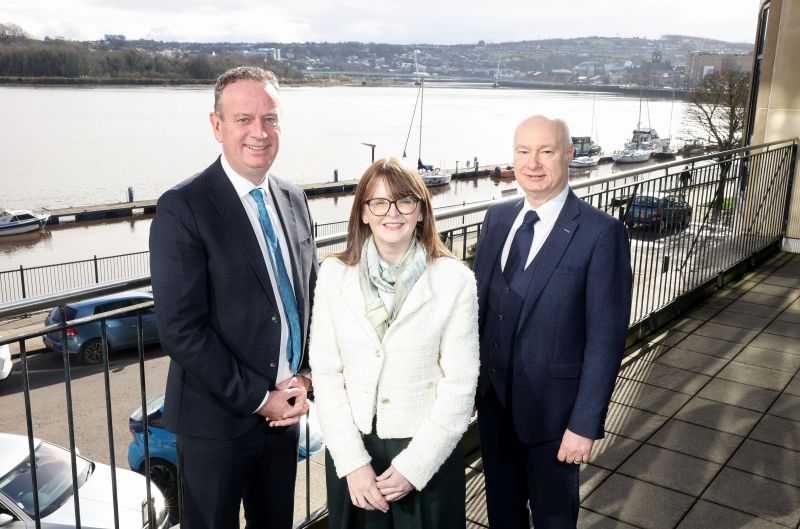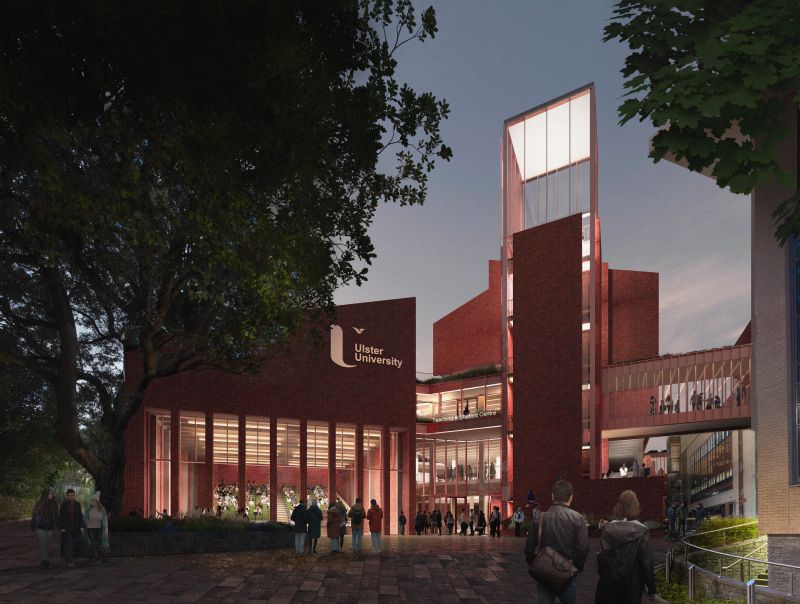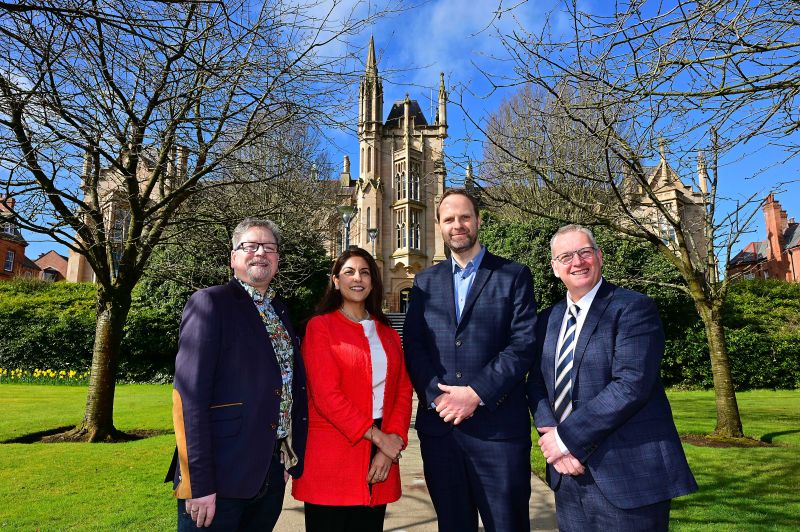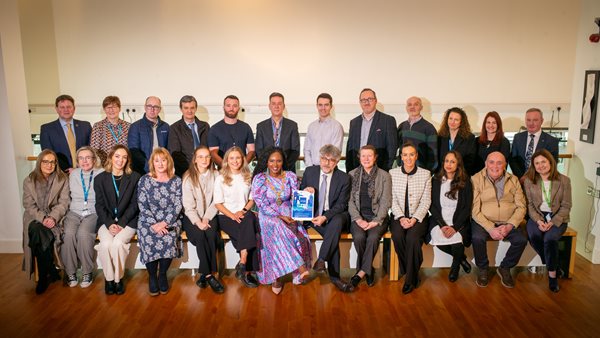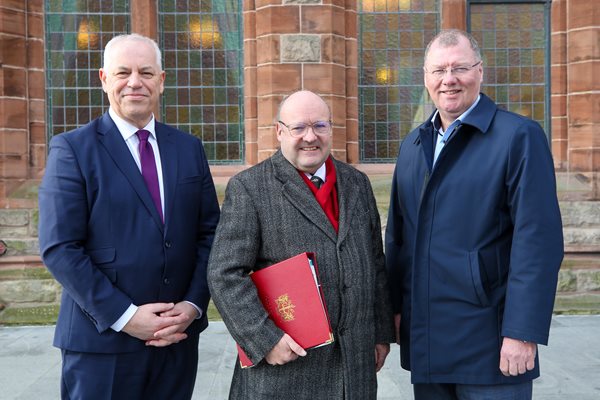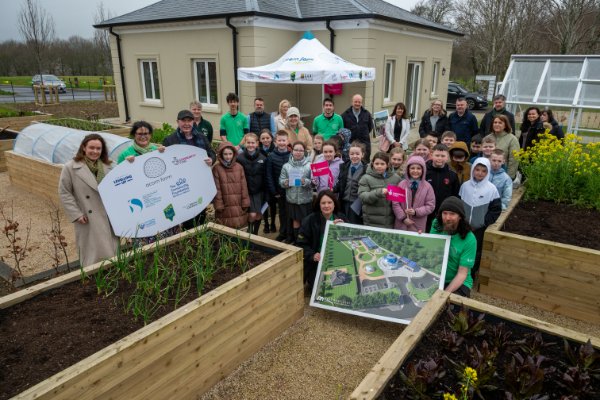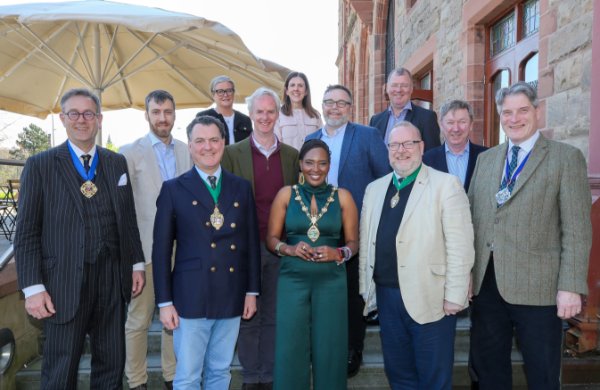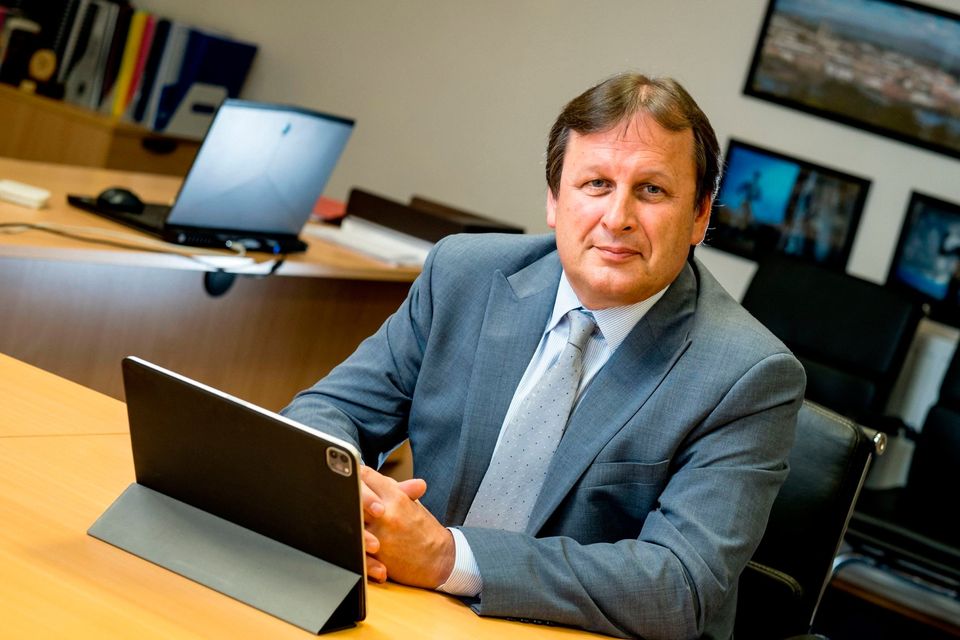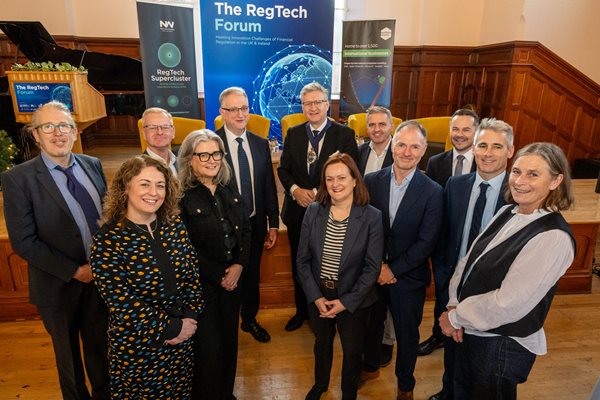Funding for the North West Digital Employment Pathway Training Hub (NW DEPTH) initiative was included in a total of €46,064,915 of PEACEPLUS funding announced recently to improve equal access to inclusive and quality services in education, training and lifelong learning in Northern Ireland and the border counties of Ireland.
This project – supported by the PEACEPLUS Programme, managed by the Special EU Programmes Body (SEUPB) – will be led by Atlantic Technological University, in partnership with Ulster University, North West Regional College, and Donegal Education and Training Board via their well-established strategic collaboration, the North West Tertiary Education Cluster (NWTEC).
The Area Based Regional Skills Development Programme, through the PEACEPLUS Delivering Socio-Economic Regeneration and Transformation theme, will develop and upskill 10,000 people to engage on key growth sectors, which will boost economic growth and create a more balanced regional economy. The NW DEPTH proposal aims to deliver a digital skills framework targeting the North West City Region (County Donegal and the Derry City and Strabane District Council Area). The NW DEPTH project will develop and deliver a portfolio of upskilling and reskilling programmes to ensure 2,000+ people advance up the qualifications’ framework via digital and cybersecurity skills courses.
The NW DEPTH project will run for a four-year period and will see close to a €10 million investment in digital skills in the North West. A target of 2,000+ participants will have access to high-quality employment-focused digital and cybersecurity tertiary education programmes free of charge. To ensure a lasting legacy, the funding also includes provision for the development of a NW Digital Strategy aimed at supporting the growth of the many innovative digital enterprises operating in this cross-border region and improving the attractiveness of the region for the establishment of new smart enterprises.
PEACEPLUS is managed by the Special EU Programmes Body (SEUPB) and represents a funding partnership between the European Union, the Government of the United Kingdom of Great Britain and Northern Ireland, the Government of Ireland, and the Northern Ireland Executive.
NWTEC partners recognise the strong support that this represents from the funders and the responsibility it confers on NWTEC to deliver on the transformative potential that this funding has in conjunction with other recent funding announcements, such as the Derry and Strabane Growth Deal.
Dr Orla Flynn, President of ATU, stated that “securing PEACEPLUS funding for the NW DEPTH project will empower a significant number of individuals to thrive in an increasingly digital world of employment. It will not only enrich individual lives, but this funding will also strengthen regional industries by better facilitating innovation as well as providing support for economic growth. I want to congratulate those who worked on this bid and look forward to seeing successful outcomes being achieved in the years ahead.”
Professor Paul Bartholomew, Vice-Chancellor at Ulster University said “Ulster University is delighted to be a key project partner on the North West Digital Employment Pathways Training Hub (NW DEPTH) initiative. This is a strategically important investment in the skills profile of the NW region and complements other major investment plans enabled by the Derry and Strabane City Deal and Shared Island funding. This project builds on existing collaboration and co-operation established through the North West Tertiary Education Cluster and this PEACEPLUS investment in digital skills is a further endorsement of the value placed on, and importance of, developing education and capacity to support economic and social development across the region. The overall objective of DEPTH is to develop a Digital Skills framework for individuals to support re-entering, remaining or progressing their role in the NW region workforce, which is particularly important as we work with partners across the region to expand Ulster University’s campus in Derry~Londonderry. We look forward to continuing to work with partners on the digital skills development, upskilling and reskilling provision in the region targeting 2000 participants across the four years of the project.”
SEUPB Chief Executive Gina McIntyre said: “This PEACEPLUS funding supports five area-based approaches, designed to address evidenced skills gaps, which will result in increased productivity and employment and higher levels of cross-border labour mobility. The programme and the joined-up approach will enable cross-community and cross-border collaboration between education and training-based collaborations that maximise the capacity of the programme area to address existing and emerging skills gaps, and opportunities for reskilling. Economic development in post-conflict regions is vital in underpinning peace. Investment in the economy, providing support for SMEs, research, and innovation in specific areas of need are among the key focus areas for the PEACEPLUS Delivering Socio-Economic Regeneration and Transformation theme.”
Leo Murphy, Principal and Chief Executive of North West Regional College (NWRC) said: “We at NWRC are delighted to be involved as a partner on the NW DEPTH project. This is a validation of the excellent work of the North West Tertiary Education Cluster by building digital and cybersecurity skills sets within our NW region. The partnership with Mastercard allows the region to develop an enhanced presence on FinTech and cyber expertise at a tertiary skills level. This will allow us to build competitive advantage and lead to the potential for more inward investment and indigenous growth in this sector.”
Anne McHugh, Chief Executive of Donegal Education and Training Board expressed delight that the NWTEC will be providing this much needed digital skills training in the region. “Our cross-border region is unique and full of opportunities and promise. This funding will significantly raise the chances that its promise will be fulfilled as we continue to seek to provide opportunities which will allow the region to compete on an all-island basis. Donegal ETB plays an enormously important part in the skills development area within Co Donegal and the cross-border region and the PEACEPLUS funding will contribute to this ongoing work in a really positive way.”
Paul Hannigan, Head of College ATU Donegal and VP for Cross-border Engagement at ATU, noted: “NWTEC is a strong partnership, and through our industry engagement via the NWTEC Smart Industry Board together with our links to community groups, this consortium is committed and well placed to deliver on the full potential of this critically important PEACEPLUS support for the North West City Region.”
